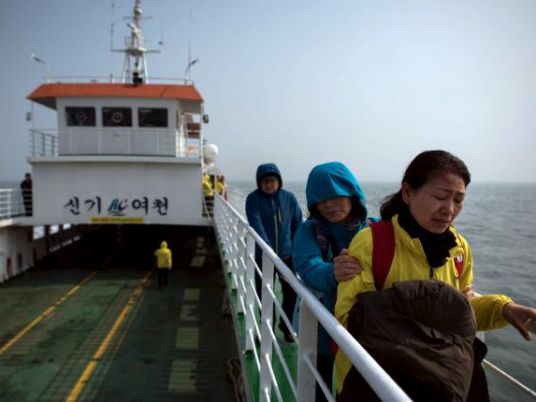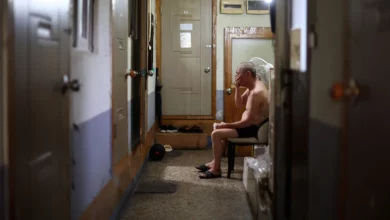
The captain of a South Korean ferry that sank last year, killing 304 people, was found guilty of homicide by an appeals court on Tuesday and sentenced to life in prison, overturning an earlier conviction for negligence.
Prosecutors who had originally sought a homicide conviction for ferry captain Lee Joon-seok appealed against a decision by a lower court in November that found him guilty of negligence and sentenced him to 36 years in jail.
Defence lawyers for Lee had also lodged an appeal against the severity of that earlier sentence but their appeal was rejected by the Gwangju High Court, which upheld the prosecutors' demand and imposed the harsher verdict and sentence.
The Gwangju High Court also overturned a homicide conviction against the chief engineer of the ferry Sewol, finding him guilty instead of negligence. His sentence of 30 years in jail was reduced to 10 years.
Video footage of the crew abandoning the Sewol after instructing passengers to remain in their cabins had caused outrage and calls for harsh punishment. Most of the passengers were teenagers on a school field trip.
Only 172 of the ferry's 476 passengers and crew were rescued. Of the 304 confirmed dead or still listed as missing, 250 were school children.
Lee apologized to the victims' families during the lower court trial and said he did not intend to kill anyone. The prosecutors had argued that failing to exercise his duty to evacuate passengers was akin to homicide.
The crew members, who were given prison terms ranging from five to 36 years, had pleaded for leniency and said they had never received proper training on passenger evacuation.
The appeals court reduced the prison terms for the 14 other crew members to between 18 months and 12 years, the appeals court said.
The overloaded Sewol capsized while making a turn on a routine journey on April 16 last year. The vessel was later found to be structurally defective.
Before launching the appeals, a prosecutor involved in the case said in November the decisions against the 15 crew members, including the chief engineer, were "disappointing", especially the verdict that the captain was not guilty of homicide.




